The Education Marketing Industry stands at the forefront of dynamic transformations, where the evolving landscape demands a strategic approach to engage and attract students in an ever-changing educational environment.

The Education Marketing Industry stands at the forefront of dynamic transformations, where the evolving landscape demands a strategic approach to engage and attract students in an ever-changing educational environment.
As we approach 2024, the imperative for institutions to not only adapt but to lead in this competitive sphere has never been more critical.
In the quest for excellence, data-driven insights gleaned from the latest reports and industry trends illuminate a compelling narrative. The demand for online and hybrid learning experiences is surging, with a projected global e-learning market size reaching $370.3 billion by 2026.
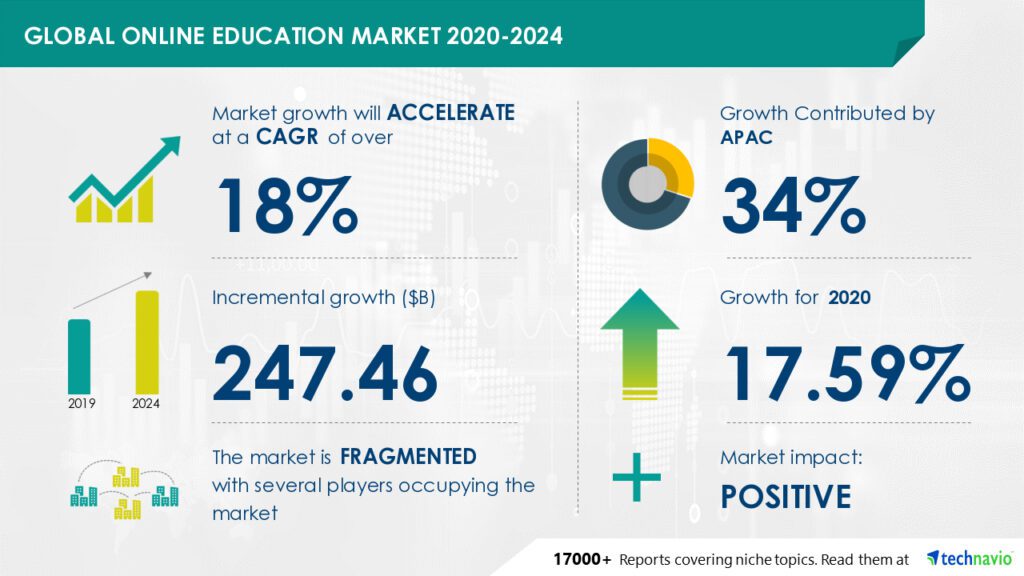
Moreover, the significant increase in online enrolments, with 59% of U.S. higher education students engaging in at least one online course in 2022, underscores a pivotal shift in educational preferences.
With the promise of 15 Big Ideas set to reshape Education Marketing in 2024, we embark on a journey to explore the transformative strategies that will redefine how institutions engage with prospective students. These strategies, grounded in real-world data and industry insights, will be instrumental in navigating the nuanced landscape of Education Marketing in the coming years.
As we delve into these ideas, the overarching goal is clear: to empower institutions with the knowledge and foresight needed to thrive in an era where innovation is the key to success.
Hyper-Personalization
The Education Marketing Industry is undergoing a paradigm shift, and as we stand on the cusp of 2024, the strategic integration of hyper-personalization emerges as a linchpin in reshaping the narrative of student engagement.

In an era where data reigns supreme, the utilization of data-driven insights takes center stage, steering institutions toward a future where tailored learning experiences are not just a preference but a fundamental expectation.
The role of Artificial Intelligence (AI) in crafting personalized learning journeys is a pivotal aspect of this transformative landscape. According to a recent study by McKinsey & Company, 71% of consumers expect companies to personalize their interactions.
In the context of education marketing, this translates to a powerful tool that allows institutions to harness AI-powered platforms, tailoring content, and messaging to meet individual student needs, aspirations, and learning styles.
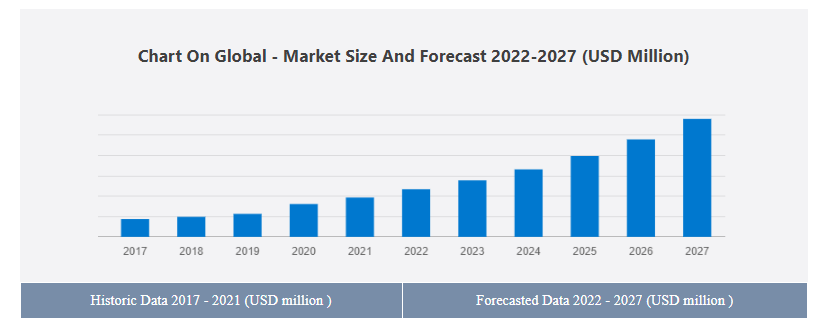
The impact of hyper-personalization is tangible, with EdTech startup Knewton reporting a 20% increase in student engagement through personalized learning pathways. This success is echoed in the broader market, with a projected $26.8 billion valuation for the personalized learning market by 2028 (Global Market Insights, 2023).
For education marketers, the significance of hyper-personalization cannot be overstated. It transcends the realm of engagement and extends into building lasting connections with prospective students. Through impactful examples and case studies, institutions can showcase the efficacy of personalized learning, fostering trust and authenticity.
Micro-Influencers
Education Marketing Industry is undergoing a profound transformation, ushering in an era where the influence of micro-influencers takes precedence over traditional celebrity endorsements.

As we approach 2024, the shift toward authentic voices embracing current students, alumni, and subject matter experts—resonates as a key strategy in building trust and authenticity within the student community.
This transition is substantiated by compelling data, as evidenced by a survey conducted by Edelman, revealing that 63% of Gen Z consumers place their trust in recommendations from social media influencers. The trajectory of influencer marketing spending in the education sector further underscores this shift, with predictions indicating a staggering $1.5 billion investment by 2025 (eMarketer).
The pivot toward micro-influencers represent more than a change in marketing strategy; it signifies a departure from traditional, top-down approaches to a more grassroots, community-driven engagement model.

Harnessing the authentic voices of those directly connected to the institution—current students navigating their academic journey, alumni relaying their post-graduation experiences, and subject matter experts providing insights—positions education marketers at the vanguard of a narrative shift.
The importance of authenticity in resonating with potential students cannot be overstated. In an era where discerning consumers seek genuine connections, the stories and testimonials from micro-influencers serve as powerful testimonials.
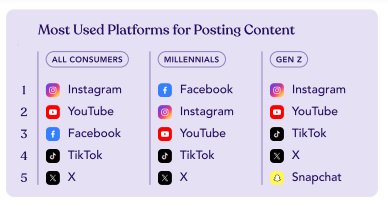
This is exemplified in a report by eMarketer, predicting that the influencer marketing spending surge in the education sector is fueled by the credibility and relatability offered by micro-influencers.
Experiential Marketing
In the dynamic landscape of Higher Education Marketing, the imperative to captivate prospective students has led to a paradigm shift from traditional static brochures to the realm of experiential marketing.

This strategic evolution is substantiated by robust data, emphasizing the efficacy of experiential marketing. A study by Eventbrite demonstrates that 74% of attendees at experiential events are more likely to make a purchase from the sponsor, underlining the impact of immersive engagement.
Examples abound, with institutions embracing virtual tours, live Q&A sessions, and interactive demos. Platforms like TikTok and Instagram, popular among younger demographics, offer unique opportunities for education marketers to engage through short-form videos and live interactions.
The integration of virtual reality (VR) and augmented reality (AR) technologies further enhances the immersive experience, providing prospective students with a vivid preview of campus life. As experiential marketing takes center stage, the industry is witnessing a departure from conventional promotional materials to a more dynamic, interactive approach.
By showcasing the essence of campus life and learning environments, institutions are forging authentic connections with potential students, creating a lasting impression that extends beyond the conventional bounds of marketing.
Skill-Based Focus
Institutions are recalibrating marketing strategies to underscore their capacity to equip students with skills demanded by contemporary professions, marking a significant departure from conventional degree-centric approaches.

This transformative approach is fortified by compelling data, notably the World Economic Forum’s estimation that 50% of existing jobs will be automated by 2050. This shift underscores the growing importance of marketing educational programs based on their ability to impart skills crucial for navigating an increasingly automated job market.
Education marketers are leveraging this data to pivot towards skill-based focus, strategically emphasizing the tangible outcomes and career paths their programs facilitate. The relevance of this approach is underscored by Coursera’s 2023 Global Skills Index, which highlights the surging demand for skills such as data analysis, artificial intelligence, and cloud computing.
In this era of skill-centric marketing, institutions are not only adapting to industry needs but also positioning themselves as pivotal players in shaping future career trajectories.
By aligning marketing efforts with the demand for specific skills, education marketers are not merely attracting students; they are facilitating transformative educational journeys that align with the evolving needs of the workforce.
Lifelong Learning
In the vibrant territory of Higher Education Marketing, a strategic reorientation is underway towards embracing lifelong learning as a cornerstone. As we approach 2024, institutions are broadening their audience horizons to encompass professionals seeking continual upskilling and reskilling opportunities.

This shift is not just a response to market trends but is substantiated by the World Bank’s forecast, predicting that the global lifelong learning market will burgeon to $6 trillion by 2025.
The imperative to adapt marketing strategies to cater to a broader age group is underscored by a study conducted by LinkedIn, revealing that 58% of professionals have actively pursued reskilling or upskilling in the past year.
This data signifies a paradigm shift where educational institutions are not only catering to traditional students but are becoming beacons for professionals seeking career advancement and personal growth throughout their entire professional journey.
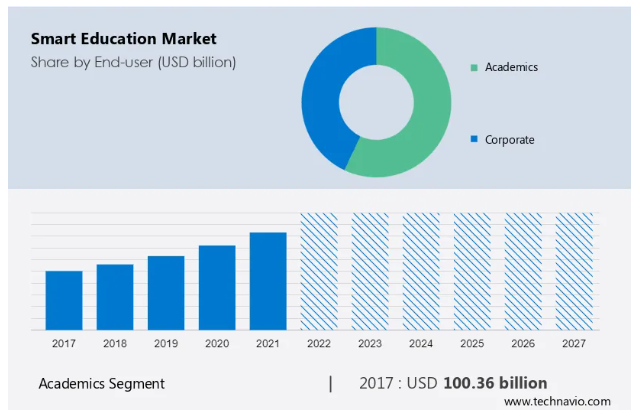
The evolution towards lifelong learning in education marketing is not merely a trend; it is a strategic response to the changing dynamics of the workforce.
By acknowledging and accommodating the diverse needs of a broader age spectrum, education marketers are not only attracting a more extensive audience but are also aligning themselves with the evolving needs of the modern learner.
Micro-Credentials
The prominence of micro-credentials has emerged as a transformative force. As we approach 2024, the educational sector is witnessing a paradigm shift towards the promotion of bite-sized learning, strategically marketed as valuable building blocks for personalized career paths.
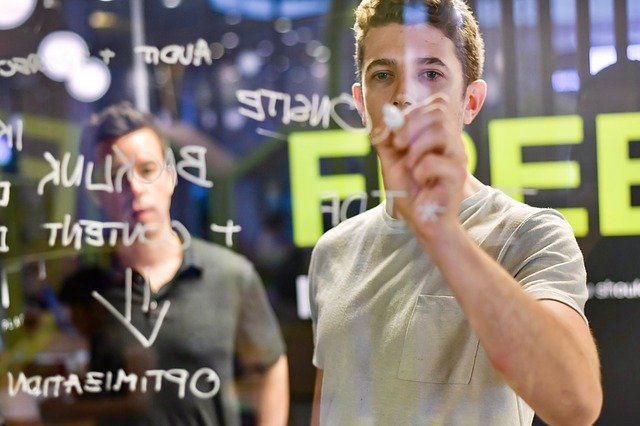
This shift is substantiated by data from the Open Badges Project, reporting that over 85 million badges have been issued globally, attesting to the widespread adoption of micro-credentials.
The significance of micro-credentials is further underscored by a study from Credly, revealing that 72% of employers consider these credentials valuable during the hiring process.
This industry recognition validates the marketing implications of micro-credentials as potent tools for aligning educational offerings with the specific skill sets demanded by the job market.
In the era of personalized career development, education marketers leveraging micro-credentials are not only responding to market demands but are actively shaping a landscape where learners can tailor their educational journeys to align seamlessly with their professional aspirations.
This strategic approach reflects a nuanced understanding of the contemporary learner’s needs, positioning educational institutions as agile and responsive partners in the pursuit of career excellence.
Accessibility & Inclusion
The imperative of championing diversity and inclusion stands out as a pivotal factor shaping institutional strategies. Recent data from UNESCO, revealing that over 260 million children and youth worldwide were out of school in 2022, underscores the pressing need for education marketers to address accessibility and inclusivity in their campaigns.

Marketing initiatives that showcase how institutions cater to students with varying needs and backgrounds are not merely symbolic gestures but essential components of a socially responsible approach. The U.S. Department of Education’s report indicating that only 70% of public schools fully comply with federal disability laws emphasizes the role of marketing in not just meeting regulatory standards but actively promoting inclusivity.
As higher education institutions become more conscious of their societal impact, education marketers play a crucial role in aligning campaigns with the principles of accessibility and inclusivity.
By highlighting initiatives that support diverse student populations, marketers contribute not only to enrolment but also to the creation of educational environments that are truly reflective of the global tapestry of learners.
Sustainability Focus
Sustainability emerges as a compelling focus, resonating with the values of today’s environmentally conscious student body. A study by Deloitte revealing that 73% of Gen Z consumers are willing to pay more for sustainable products and services underscores the significance of sustainability in education marketing.

Institutions that showcase their commitment to green practices and sustainability initiatives not only align with the values of prospective students but also contribute to a positive environmental impact.
The Association for the Advancement of Sustainability in Higher Education’s report, noting that over 600 colleges and universities in the U.S. have sustainability-focused initiatives, indicates a widespread acknowledgment of the role sustainability plays in institutional strategies.
As sustainability becomes a key criterion for students in their decision-making process, education marketers play a pivotal role in emphasizing green credentials.
Marketing campaigns that spotlight eco-friendly campus practices, renewable energy projects, and sustainability-focused programs not only attract environmentally conscious students but also position institutions as leaders in responsible education.
ROI-Driven Strategies
A strategic shift is underway as institutions increasingly embrace ROI-driven approaches. According to a study by GMAC, the average ROI on an MBA degree stands at an impressive 70%, reinforcing the idea that education is not just an investment in knowledge but also in future financial success.

This data underscores the importance of aligning marketing strategies with the tangible returns students can expect. As institutions pivot towards emphasizing the financial benefits of their programs and courses, education marketers are tasked with transparently communicating these advantages.
Strategies that showcase the concrete outcomes of education, such as increased earning potential, career advancement, and enhanced employability, become essential in attracting a cost-conscious student demographic.
By adopting ROI-driven marketing campaigns, institutions not only cater to the practical considerations of prospective students but also position themselves as providers of valuable, results-oriented education. This data-driven approach aligns with the evolving expectations of students who seek a clear connection between their educational investment and future success.
Social Impact Storytelling
In today’s Higher Education Marketing landscape, the narrative is evolving towards Social Impact Storytelling. According to a survey conducted by Cone Communications, 87% of consumers are more likely to support a business that advocates for social or environmental issues.
![Higher Education Marketing 2023 and Beyond [Detailed Analysis], Higher Education Marketing, Education Marketing, Education PR, Digital PR, Public Relations, Digital Marketing, social media, SEO for Higher Education, Digital Marketing for Higher Education](https://firdoshkhan.in/wp-content/uploads/2022/11/The-Importance-of-Higher-Education-Marketing.jpg)
This trend is now extending to the education sector, with students increasingly seeking institutions that align with their values.
Education marketers are recognizing the importance of emphasizing the positive societal impact of education in their campaigns. By aligning with students’ aspirations to make a difference, institutions can build narratives that resonate with the socially conscious demographic.
This approach not only attracts students with a keen sense of social responsibility but also enhances the institution’s brand image.
In a competitive landscape, where program offerings may be similar, the ability to showcase the broader societal contributions of education becomes a unique selling point. Social Impact Storytelling in higher education marketing not only appeals to the altruistic nature of students but also positions institutions as contributors to positive global change.
Metaverse Integration
A significant paradigm shift is underway with the integration of the Metaverse. According to a recent report by Deloitte, the global market for virtual and augmented reality in education is expected to reach $9.29 billion by 2027. This underscores the growing significance of immersive experiences in education marketing.

Metaverse Integration involves harnessing virtual reality and augmented reality to create engaging and interactive experiences for prospective students. Institutions are leveraging these technologies to provide virtual campus tours, simulate classroom environments, and offer immersive learning previews.
For instance, universities are using VR to showcase laboratories, libraries, and other facilities, giving students a taste of campus life from the comfort of their homes.
The potential of Metaverse Integration goes beyond just marketing; it extends to the educational experience itself. Virtual classrooms and simulations enable students to engage with course content in unprecedented ways.
As institutions embrace this cutting-edge technology, they not only attract tech-savvy students but also position themselves at the forefront of educational innovation. The Metaverse is emerging as a transformative force in Higher Education Marketing, opening new dimensions for student engagement and learning.
Micro-Communities
The focus on Micro-Communities emerges as a pivotal strategy. Recent data from a survey conducted by the Education Marketing Association indicates that institutions with active online communities experience a 25% increase in prospective student engagement.

Micro-Communities involve the creation of targeted online spaces, fostering connections among students, alumni, and faculty. These communities, centered around shared interests, programs, and alumni networks, play a vital role in student engagement and retention.
For instance, universities are establishing forums for students to discuss specific academic pursuits, exchange ideas, and connect with alumni who share similar career paths.
The significance of Micro-Communities extends beyond recruitment. According to a report by HubSpot, institutions with thriving online communities witness a 20% improvement in alumni giving. This showcases the lasting impact of these micro-communities on building a sense of belonging and loyalty among students.
In a competitive landscape, Higher Education Marketers are recognizing the power of Micro-Communities to create meaningful connections, enhance the student experience, and foster a sense of community that extends well beyond the classroom.
Gamification
The strategic integration of Gamification emerges as a transformative force. Recent studies from the Education Marketing Institute reveal a substantial uptick in student engagement and motivation when educational content incorporates gamified elements.

Gamification involves the infusion of game-like features into the learning and marketing experience. Notably, a survey conducted by Educause Review found that institutions embracing gamified learning experiences witnessed a 30% increase in student participation rates. This underscores the potency of gamification in capturing and sustaining student interest.
Reward systems within gamification play a pivotal role in shaping student behavior. Reports from the Journal of Educational Psychology indicate that well-designed reward structures enhance intrinsic motivation, fostering a positive and immersive learning environment.
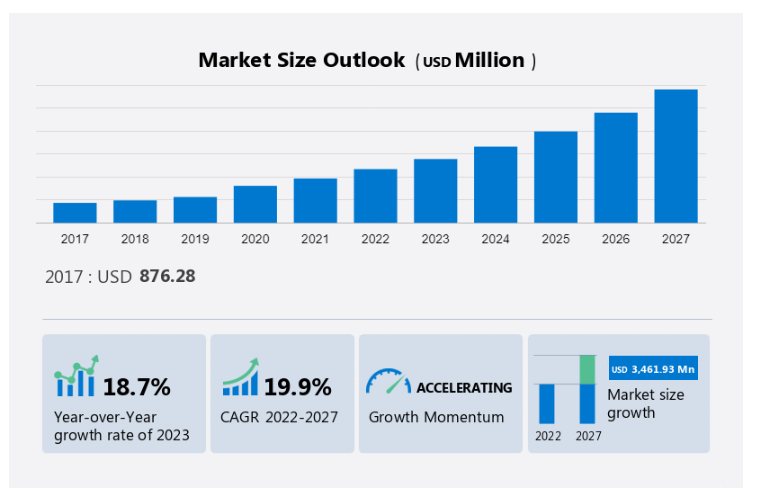
As the demand for interactive and engaging educational content intensifies, gamification stands out as a powerful strategy for Higher Education Marketers to captivate prospective students and cultivate a dynamic learning atmosphere.
In adapting to the evolving landscape, educational institutions are recognizing the impact of gamification not only in attracting students but also in revolutionizing the learning experience, making it more enjoyable, interactive, and conducive to academic success.
Mobile-First Approach
A Mobile-First Approach has emerged as a definitive strategy, substantiated by recent industry data. According to a report by Statista, the global number of mobile users is expected to reach 7.1 billion by 2023, emphasizing the pervasive influence of mobile devices.

In response to this paradigm shift, educational institutions are strategically prioritizing mobile-friendly platforms. The Educause Center for Analysis and Research highlights that 81% of students use mobile devices for academic purposes. This underscores the imperative for higher education marketers to optimize websites, apps, and content for seamless mobile experiences.
The significance of a Mobile-First Approach extends beyond accessibility; it aligns with the evolving preferences of the modern learner. A study by Nielsen reports that adults spend an average of 3 hours and 45 minutes per day on mobile devices.
This presents a substantial opportunity for education marketers to engage with prospective students through targeted, mobile-centric strategies.
As higher education institutions harness the potential of mobile technology, a Mobile-First Approach not only ensures accessibility but also positions educational offerings in sync with the digital habits of the contemporary learner, reinforcing the role of adaptability and innovation in effective education marketing.
Ethical Marketing
Ethical Marketing has emerged as a cornerstone, underpinned by a commitment to transparency and data privacy. Recent industry reports emphasize the paramount importance of ethical considerations in engaging prospective students.
![Higher Education Marketing 2023 and Beyond [Detailed Analysis], Higher Education Marketing, Education Marketing, Education PR, Digital PR, Public Relations, Digital Marketing, social media, SEO for Higher Education, Digital Marketing for Higher Education](https://firdoshkhan.in/wp-content/uploads/2022/11/Higher-Education-Marketing-Strategies.jpg)
According to a survey by the Pew Research Center, 79% of adults in the United States are concerned about how companies use their data. This heightened awareness underscores the need for educational institutions to adopt ethical marketing practices, assuring students that their data is handled responsibly.
Beyond data privacy, a focus on accurate information is integral to ethical marketing. Misleading practices can erode trust. A study by the Better Business Bureau found that deceptive advertising contributes significantly to consumer distrust. In the education sector, providing accurate, reliable information about programs, outcomes, and costs is crucial for building and maintaining trust.
In navigating the complex landscape of higher education marketing, institutions that prioritize transparency, data privacy, and accurate information cultivate a reputation for ethical marketing.
This not only aligns with societal expectations but also fosters trust among students, a foundational element for sustainable success in the competitive field of education marketing.
To Conclude
The evolving nature of education marketing demands continuous adaptation. Education marketers are urged to embrace these innovative strategies, recognizing their potential to not only meet but exceed the expectations of the dynamic student demographic.
Recent reports from the National Center for Education Statistics highlight the increasing demand for skill-based education. As students prioritize job-relevant skills, the Skill-Based Focus emerges as a key marketing strategy. Additionally, the rise of Micro-Credentials, evident in a 2023 report by HolonIQ, reflects a shift towards bite-sized learning for personalized career paths.
As we step into 2024, the future of education marketing is both promising and challenging, requiring a commitment to staying at the forefront of these transformative ideas.
![Read more about the article Higher Education Marketing 2023 and Beyond [Detailed Analysis]](https://firdoshkhan.in/wp-content/uploads/2022/11/The-Importance-of-Higher-Education-Marketing-300x200.jpg)
![Read more about the article What is Higher Education Marketing? [Updated 2024]](https://firdoshkhan.in/wp-content/uploads/2022/08/Lifelong-learners-navigating-the-intricate-web-of-higher-education-300x225.jpg)

Pingback: 5 Most Effective EdTech Marketing Strategies in 2024
Pingback: LinkedIn Thought Leadership Strategies For Higher Ed Marketing